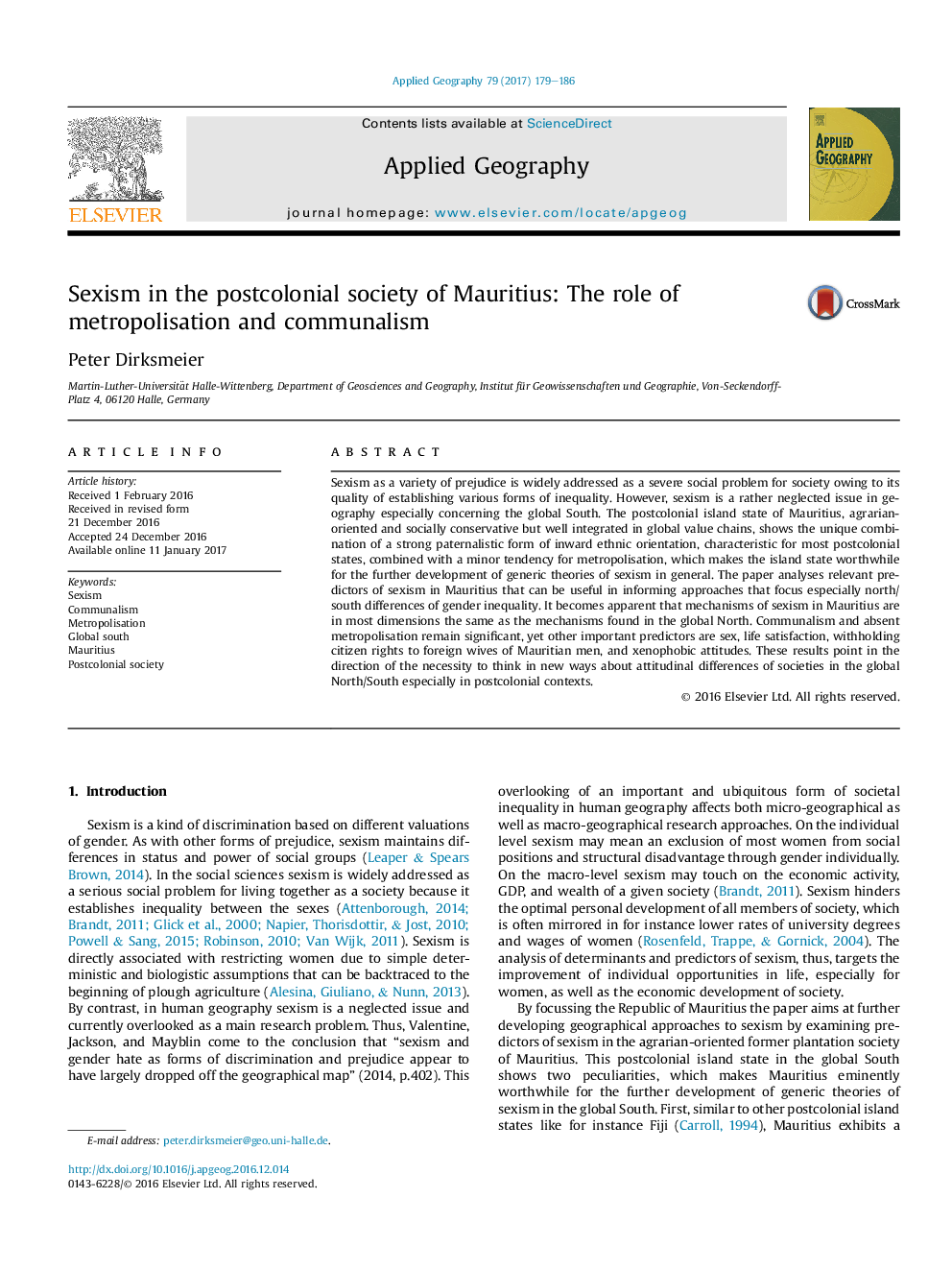| کد مقاله | کد نشریه | سال انتشار | مقاله انگلیسی | نسخه تمام متن |
|---|---|---|---|---|
| 6458439 | 1421038 | 2017 | 8 صفحه PDF | دانلود رایگان |
- An empirical analysis of sexism in Mauritius with survey data is presented.
- Sexism as an empirical tool for analysing attitudinal trajectories in the global South is elaborated.
- Metropolitan living and communalism have a strong impact on sexist attitudes in Mauritius.
- Mauritius represents an attitudinal realignment between the global South and North.
Sexism as a variety of prejudice is widely addressed as a severe social problem for society owing to its quality of establishing various forms of inequality. However, sexism is a rather neglected issue in geography especially concerning the global South. The postcolonial island state of Mauritius, agrarian-oriented and socially conservative but well integrated in global value chains, shows the unique combination of a strong paternalistic form of inward ethnic orientation, characteristic for most postcolonial states, combined with a minor tendency for metropolisation, which makes the island state worthwhile for the further development of generic theories of sexism in general. The paper analyses relevant predictors of sexism in Mauritius that can be useful in informing approaches that focus especially north/south differences of gender inequality. It becomes apparent that mechanisms of sexism in Mauritius are in most dimensions the same as the mechanisms found in the global North. Communalism and absent metropolisation remain significant, yet other important predictors are sex, life satisfaction, withholding citizen rights to foreign wives of Mauritian men, and xenophobic attitudes. These results point in the direction of the necessity to think in new ways about attitudinal differences of societies in the global North/South especially in postcolonial contexts.
Journal: Applied Geography - Volume 79, February 2017, Pages 179-186
